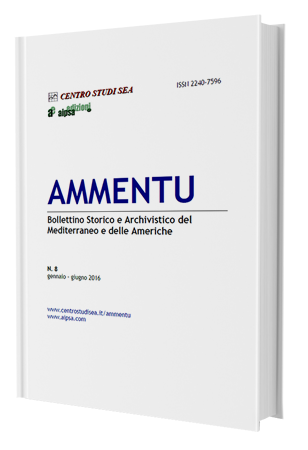The Aborted Revolution. The Italian Community in Tunisia between the Ideals of Risorgimento and Colonial Interests
DOI:
https://doi.org/10.19248/ammentu.216Keywords:
Tunisia, Italian community, Sardinian migration in Tunisia, RisorgimentoAbstract
The history of the Italian community in Tunisia gives us an account of the meeting of two peoples and two cultures. The Italian migration to the African coasts has ancient origins, developing over the centuries, linked to the historical conditions and policies of the Peninsula. From the first half of the nineteenth century, because of the Italian revolutionary movements, the political oppositionists took refuge in Tunis, where their compatriots already occupied important positions in the social context of the country. Since then Tunis became one of the most important centers of Mazzini’s conspiracy and the political refugees introduced new political ideas in that social setting, then implemented by the elites of the country. In those years the ideals of independence, freedom and self-government borrowed from the Italian experience, that seemed being able to make themselves known in Tunisia, suffered a sharp reduction after the Berlin Congress of 1878 and ended definitely with the establishment of the French protectorate that marked the fate of the Tunisia and of the Italian community, from that moment abandoned to its own fate, very different from that of the reference country.Downloads
Published
2016-10-11
Issue
Section
DOSSIER - Sardegna e Tunisia: una storia fra due sponde
License
Note on the copyright
The Copyright Notice below must be included with the journal information and in the metadata for each published article. Although every journal can freely determine the nature and scope of the copyright agreement with its authors, the Public Knowledge Project recommends the use of a Creative Commons license. For these purposes, an example is provided and may be copy and pasted in the space below for those journals that (a) offer open access, (b) offer deferred open access or (c) do not offer open access.









